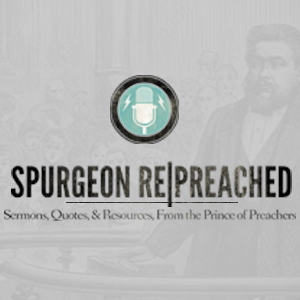Below is a moving selection from the forward to The Banner of Truth’s Edition of Thomas Goodwin’s book “The Heart of Christ” written by Michael Reeves that he posted over at The Theology Network.
How can Thomas Goodwin be so forgotten? Once ranked as a theologian alongside Augustine and Athanasius, even hailed as ‘the greatest pulpit exegete of Paul that has ever lived’, he should be a household name. His writings, while not easy, always pay back the reader, for in Goodwin a simply awesome theological intellect was wielded by the tender heart of a pastor…
Afterwards he took over from Richard Sibbes’ preaching at Holy Trinity Church. It was an appropriate transition, for while in his navel-gazing days his preaching had been mostly about battering consciences, his appreciation of Christ’s free grace now made him a Christ-centred preacher like Sibbes. Sibbes once told him ‘Young man, if ever you would do good, you must preach the gospel and the free grace of God in Christ Jesus’ – and that is just what Goodwin now did. And, like Sibbes, he became an affable preacher. He wouldn’t use his intellectual abilities to patronise his listeners, but to help them. Still today, reading his sermons, it is as if he takes you by the shoulder and walks with you like a brother…
The Heart of Christ in Heaven Towards Sinners on Earth was, almost immediately, Goodwin’s most popular work. It is also exemplary of his overall Christ-centredness and his mix of theological rigour and pastoral concern. Published in 1651 alongside Christ Set Forth, the two were written for reasons dear to Goodwin: that is, he felt that many Christians (like himself once) ‘have been too much carried away with the rudiments of Christ in their own hearts, and not after Christ himself’. Indeed, he wrote, ‘the minds of many are so wholly taken up with their own hearts, that (as the Psalmist says of God) Christ “is scarce in all their thoughts.”’ Goodwin wanted us ‘first to look wholly out of our selves unto Christ’, and believed that the reason we don’t is, quite simply, because of the ‘barrenness’ of our knowledge of him. Thus Goodwin would set forth Christ to draw our gaze to him.
Of the two pieces, Christ Set Forth and The Heart of Christ in Heaven, the latter was the cream, he believed, for through it he would present to the church the heart of her great Husband, thus wooing her afresh. His specific aim in this essay is to show through Scripture that in all his heavenly majesty, Christ is not now aloof from believers and unconcerned, but has the strongest affections for them. And knowing this, he said, may
hearten and encourage believers to come more boldly unto the throne of grace, unto such a Saviour and High Priest, when they shall know how sweetly and tenderly his heart, though he is now in his glory, is inclined towards them.
Goodwin starts with Christ on earth and the beautiful assurances he gave his disciples. In John 13, for example, knowing that he was shortly to return to his Father, Jesus washed his disciples’ feet as a token of how he would always be towards them; he told them of how he would go like a loving bridegroom to prepare a place for his bride; after the resurrection, the first thing he calls them is ‘my brothers’; and the last thing they see as he ascends to heaven is his hands raised in blessing.
It is as if he had said, The truth is, I cannot live without you, I shall never be quiet till I have you where I am, that so we may never part again; that is the reason of it. Heaven shall not hold me, nor my Father’s company, if I have not you with me, my heart is so set upon you; and if I have any glory, you shall have part of it… Poor sinners, who are full of the thoughts of their own sins, know not how they shall be able at the latter day to look Christ in the face when they shall first meet with him. But they may relieve their spirits against their care and fear, by Christ’s carriage now towards his disciples, who had so sinned against him. Be not afraid, ‘your sins will he remember no more.’ … And doth he talk thus lovingly of us? Whose heart would not this overcome?
It is moving stuff, and it is strong stuff. In fact, Goodwin presents the kindness and compassion of Christ so strikingly that, when reading him, I find myself continually asking ‘Is Goodwin serious? Can this really be true?’ He argues, for example, that in Christ’s resurrection appearances, because he had dealt with the sin of his disciples on the cross, ‘No sin of theirs troubled him but their unbelief.’ And yet Goodwin is so carefully scriptural that one is forced to conclude that Christ really is more tender and loving than we would otherwise dare to imagine.
Then Goodwin takes us to the heart of his argument: his exposition of Hebrews 4:15, which
doth, as it were, take our hands, and lay them upon Christ’s breast, and let us feel how his heart beats and his bowels yearn towards us, even now he is in glory – the very scope of these words being manifestly to encourage believers against all that may discourage them, from the consideration of Christ’s heart towards them now in heaven.
Goodwin shows that in all his glorious holiness in heaven, Christ is not sour towards his people; if anything, his capacious heart beats morestrongly than ever with tender love for them. And in particular, two things stir his compassion: our afflictions and – almost unbelievably – our sins.
Having experienced on earth the utmost load of pain, rejection and sorrow, ‘in all points tempted like as we are’ Christ in heaven empathises with our sufferings more fully than the most loving friend. And more: he has compassion on those who are ‘out of the way’ (that is, sinning; Hebrews 5:2). Indeed, says Goodwin,
your very sins move him to pity more than to anger… yea, his pity is increased the more towards you, even as the heart of a father is to a child that hath some loathsome disease… his hatred shall all fall, and that only upon the sin, to free you of it by its ruin and destruction, but his bowels shall be the more drawn out to you; and this as much when you lie under sin as under any other affliction. Therefore fear not, ‘What shall separate us from Christ’s love?’
The focus is upon Christ, but Goodwin was ardently Trinitarian and could not abide the thought of his readers imagining a compassionate Christ appeasing a heartless Father. No, he said, ‘Christ adds not one drop of love to God’s heart’. All Christ’s tenderness comes in fact from the Spirit, who stirs him with the very love of the Father. The heart of Christ in heaven is the express image of the heart of his Father.
How we need Goodwin and his message today! If we are to be drawn from jaded, anxious thoughts of God and a love of sin, we need such a knowledge of Christ. If preachers today could change like Goodwin to preach like Goodwin, who knows what might happen? Surely many more would then say as he said ‘Christ cannot love me better than he doth. I think I cannot love Christ better than I do’.











